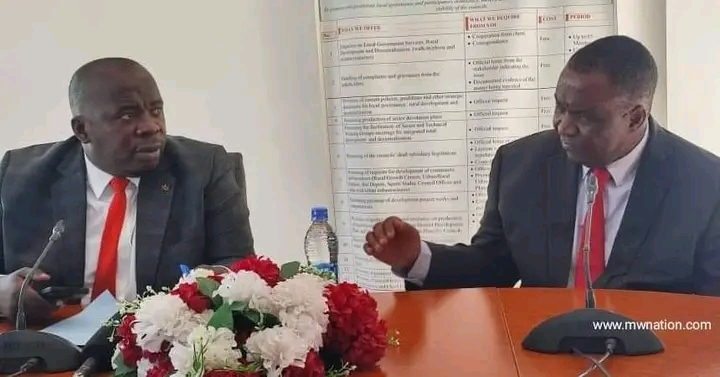
Minister of Local Government, Unity, and Culture, Richard Chimwendo Banda, has praised the late former President Dr. Hastings Kamuzu Banda for his heroism in gaining Malawi’s independence from British colonial rule and laying a solid economic foundation for the nation.
Chimwendo Banda made these remarks during a press briefing in Lilongwe, where he announced that this year’s Kamuzu Day Celebration will be held at Kamuzu Stadium in Blantyre next Tuesday, with a budget of K90 million.
Chimwendo Banda emphasized that Malawians have every reason to be proud of their former distinguished leader, Kamuzu Banda, who fought for their independence and economic liberation.
“We have organized this celebration to remind Malawians, especially the youth, about Kamuzu’s historical significance and how he brought Malawi to independence after dismantling the Federation of Rhodesia and Nyasaland,” he said.
“Kamuzu was an eminent scholar, medical doctor, and patriot who fiercely defended his people to achieve freedom, peace, unity, and stability, as well as economic liberation. For this reason, we have decided to share this important history with the younger generation,” Chimwendo Banda added.
He also announced that President Dr. Lazarus Chakwera will be the guest of honor at the event.
Ken Kandodo, a representative of the Kamuzu family, commended the government for continuing to honor and respect Kamuzu’s role during colonial oppression and his contribution to achieving independence for Malawi.
The celebration will feature a friendly football match between Bullets and Wanderers, as well as traditional dances to spice up the event.
Kamuzu Historical Background:
Hastings Kamuzu Banda was born in 1898 in Kasungu district under British Protectorate and died on November 25, 1997, at Garden City Clinic in South Africa due to old age-related diseases.
He served as Prime Minister from 1964-1966 and President from 1966 to 1994. His birthday was officially celebrated on May 14, 1906, although historians believe he was born in 1898.
Banda was born into a family of subsistence farmers and attended mission school. He later worked in Southern Rhodesia (now Zimbabwe) and South Africa before pursuing his studies in the USA, where he graduated with a Bachelor’s Degree in Arts in 1931 and a medical degree in 1937 from the University of Chicago and Meharry Medical College in Tennessee, respectively.
To practice medicine in the British Empire, Banda continued his studies at the University of Edinburgh in 1941 and later practiced medicine in England from 1946 to 1953.
Banda became interested in his homeland’s politics in the late 1940s when the colonial masters ordered the federation of Rhodesia and Nyasaland, which he strongly opposed.
In 1953, he practiced medicine in Ghana before returning home to lead the fight for independence. In March 1959, a state of emergency was declared, and he was imprisoned by the British colonial authorities.
He was released in April 1960 and led the Legislative Council before his party won the election in 1961.
He served as Minister of Local Government and National Resources from 1961-1963 and became Prime Minister in 1963, when the federation was dissolved.
He continued to serve as Prime Minister when Nyasaland achieved independence in 1964 under the name of Malawi (Flames).
Kamuzu Banda was particularly keen on promoting women’s respect (mbumba) and the importance of education to the nation, which many current leaders have failed to match.

